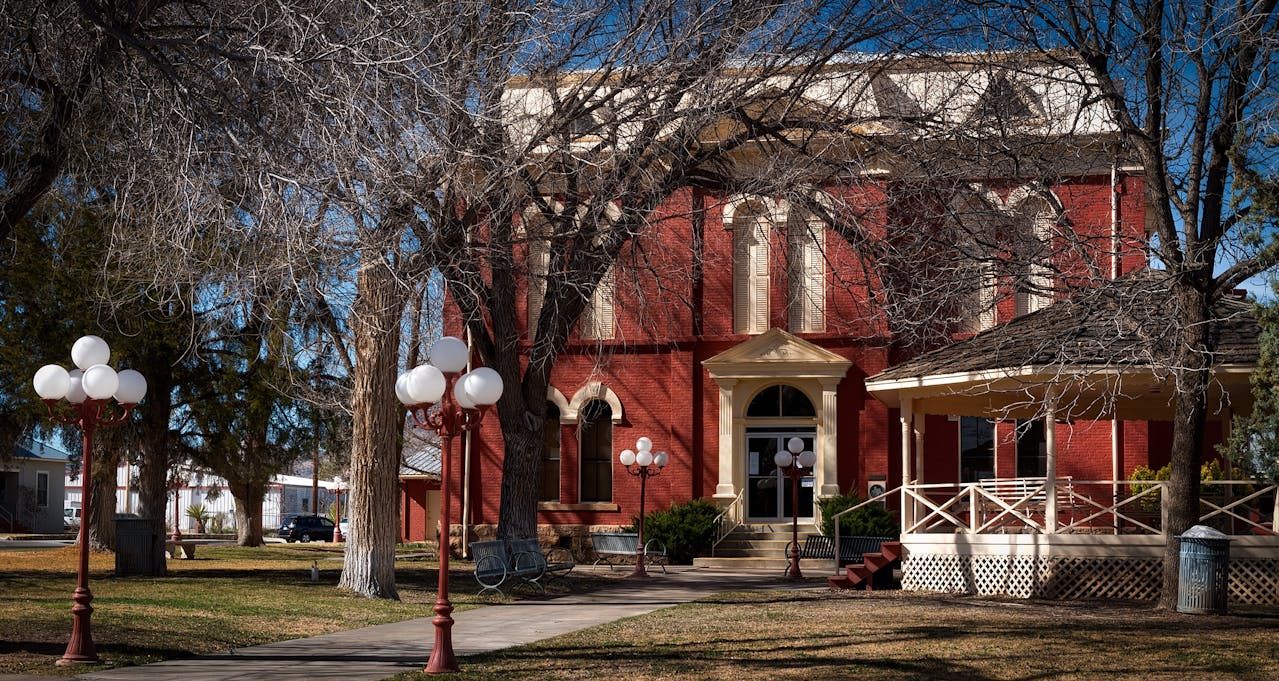Departments and specialties
Texas Health Presbyterian Hospital Dallas offers a wide range of departments and specialties to address the diverse healthcare needs of its patients, especially seniors. Key departments include cardiology, oncology, orthopedics, neurology, and geriatrics. The hospital also provides specialized care in areas like rehabilitation, memory care, palliative care, and chronic disease management. Its surgical department features advanced technology for minimally invasive procedures, while the emergency department is equipped to handle acute care needs. With a focus on multidisciplinary care, the hospital ensures that seniors receive comprehensive, coordinated treatment across multiple specialties to support their health and well-being.

Introduction
As the United States population ages, the need for specialized healthcare services catering to seniors has become increasingly urgent. One healthcare institution that has recognized and responded to this need is Texas Health Presbyterian Hospital Dallas. Located in the heart of Dallas, Texas Health Presbyterian is part of the Texas Health Resources network, a large and well-respected nonprofit healthcare system. While the hospital provides comprehensive medical services to individuals of all ages, its commitment to senior care is particularly notable. With its state-of-the-art facilities, multidisciplinary approach to healthcare, and robust array of senior-specific services, Texas Health Presbyterian Hospital Dallas stands as a beacon for elderly patients seeking high-quality, compassionate care.
Aging Population and the Demand for Senior Care
Before delving into the specifics of Texas Health Presbyterian’s offerings, it’s important to understand the broader context. The senior population in the U.S. is growing rapidly. According to the U.S. Census Bureau, by 2030, all baby boomers will be older than 65, meaning one in every five U.S. residents will be of retirement age. In Texas, this demographic shift is particularly pronounced. As more people live longer, hospitals and healthcare providers are increasingly tasked with addressing age-related medical needs, which often include managing chronic conditions, ensuring mental health and cognitive wellness, and preventing hospital readmissions. Texas Health Presbyterian Hospital Dallas has proactively addressed these challenges by creating a comprehensive suite of senior-focused programs and services.
Comprehensive Care for Seniors
Texas Health Presbyterian Hospital Dallas is committed to providing a holistic approach to healthcare for its senior patients. Recognizing that seniors often have complex medical needs, the hospital offers specialized services designed to meet the physical, emotional, and psychological needs of aging adults.
Geriatric Care: One of the core services offered by Texas Health Presbyterian Hospital Dallas is its dedicated geriatric care program. The hospital employs a team of geriatricians-physicians who specialize in the care of older adults. These doctors are skilled in managing the unique medical issues that often arise in seniors, such as polypharmacy (the use of multiple medications), mobility issues, cognitive decline, and frailty. The hospital’s geriatric care model emphasizes personalized treatment plans that take into account each patient’s overall health, lifestyle, and goals.
Chronic Disease Management: Chronic conditions like diabetes, heart disease, arthritis, and chronic obstructive pulmonary disease (COPD) are more prevalent among seniors. Texas Health Presbyterian provides comprehensive disease management programs to help elderly patients manage these long-term conditions. The hospital’s multidisciplinary approach ensures that patients receive coordinated care from various specialists, including cardiologists, endocrinologists, pulmonologists, and dietitians. This team-based approach is particularly beneficial for seniors, who often have multiple comorbidities.
Fall Prevention: Falls are a leading cause of injury among older adults, and preventing them is a key component of senior care. Texas Health Presbyterian Hospital Dallas has implemented a fall prevention program designed to reduce the risk of falls both in the hospital and at home. This program includes physical therapy to improve balance and strength, education on home safety, and assessments to identify patients at high risk for falls. The hospital also provides training for caregivers, ensuring that family members and in-home aides know how to create a safe environment for seniors.
Rehabilitation Services: Many seniors require rehabilitation services following surgery, illness, or injury. Texas Health Presbyterian offers a wide range of rehabilitative therapies, including physical, occupational, and speech therapy. These services are designed to help seniors regain their independence and improve their quality of life. The hospital’s rehabilitation team works closely with patients to develop individualized treatment plans that address their specific needs and goals, whether it’s recovering from a hip replacement or improving mobility after a stroke.
Memory Care and Cognitive Health: Cognitive decline, including conditions like dementia and Alzheimer’s disease, is a growing concern among older adults. Texas Health Presbyterian Hospital Dallas offers memory care services designed to diagnose, treat, and manage cognitive impairments. The hospital’s cognitive health program includes comprehensive assessments, medication management, and support for families and caregivers. Additionally, the hospital emphasizes mental wellness for seniors, recognizing that emotional health is just as important as physical health.
Palliative and Hospice Care: For seniors with serious or terminal illnesses, Texas Health Presbyterian provides palliative care and hospice services. Palliative care focuses on relieving symptoms and improving quality of life for patients with chronic or life-limiting conditions, while hospice care is designed for patients nearing the end of life. Both programs are designed to provide compassionate, patient-centered care that addresses not only physical symptoms but also emotional and spiritual needs. The hospital’s palliative care team includes doctors, nurses, social workers, and chaplains who work together to provide holistic support to patients and their families.
Advanced Facilities and Technology
Texas Health Presbyterian Hospital Dallas is equipped with cutting-edge technology and modern facilities that enhance the quality of care for seniors. The hospital has invested in advanced diagnostic tools, minimally invasive surgical techniques, and state-of-the-art rehabilitation equipment, all of which are particularly beneficial for older patients. For example, the hospital’s use of robotic-assisted surgery allows for more precise procedures with shorter recovery times, which is crucial for seniors who may have difficulty bouncing back from traditional surgery.
Additionally, the hospital’s electronic health record (EHR) system ensures that all members of a patient’s healthcare team have access to up-to-date medical information, facilitating better coordination of care. This is especially important for seniors who may see multiple specialists or require frequent monitoring.
Community and Support Services
In addition to its in-hospital services, Texas Health Presbyterian Hospital Dallas recognizes the importance of supporting seniors in their communities. The hospital offers a variety of community outreach programs and resources designed to help seniors stay healthy, active, and engaged.
Support Groups: The hospital hosts a number of support groups for seniors and their caregivers. These groups provide a space for individuals to share their experiences, receive emotional support, and learn about coping strategies for managing chronic conditions or the challenges of aging. Topics covered in these support groups include everything from diabetes management to caregiver stress.
Health Education Programs: Texas Health Presbyterian is committed to empowering seniors with the knowledge they need to take control of their health. The hospital offers a range of health education programs and workshops on topics such as nutrition, exercise, fall prevention, and managing chronic diseases. These programs are often led by healthcare professionals and provide practical advice that seniors can implement in their daily lives.
Home Health Services: For seniors who are homebound or require assistance after a hospital stay, Texas Health Presbyterian provides home health services. These services include skilled nursing care, physical therapy, occupational therapy, and speech therapy, all delivered in the comfort of the patient’s home. Home health services are particularly valuable for seniors recovering from surgery or managing chronic conditions, as they allow patients to receive high-quality care without the need for frequent hospital visits.
Telehealth Services: Recognizing the challenges that seniors may face in traveling to appointments, especially during the COVID-19 pandemic, Texas Health Presbyterian has expanded its telehealth services. Seniors can now access virtual consultations with their healthcare providers, making it easier to manage chronic conditions and receive follow-up care without leaving their homes. Telehealth has proven to be an effective way to monitor the health of older patients, especially those with mobility issues or those living in remote areas.
Focus on Preventative Care
Preventative care is a cornerstone of the hospital’s approach to senior health. Texas Health Presbyterian Dallas encourages seniors to prioritize regular check-ups, screenings, and vaccinations to prevent illness and detect potential health issues early. The hospital offers a variety of preventative services, including flu shots, pneumonia vaccines, and cancer screenings, all of which are especially important for seniors, whose immune systems may be weaker and more vulnerable to infection.
In addition to medical screenings, the hospital places a strong emphasis on promoting healthy lifestyle habits. Through its education programs, Texas Health Presbyterian encourages seniors to stay active, eat a balanced diet, and engage in social activities to maintain both physical and mental well-being.
Caregiver Support
Caring for an aging loved one can be both rewarding and challenging. Texas Health Presbyterian Hospital Dallas recognizes the critical role that caregivers play in senior health and offers a range of resources to support them. The hospital provides educational workshops, counseling services, and respite care programs to help caregivers manage the demands of caring for elderly family members. Additionally, the hospital’s social workers and case managers work closely with families to navigate the complexities of healthcare, including coordinating services, understanding insurance coverage, and connecting caregivers with community resources.
Retirement Communities Near Me

Retirement Community In Texas
Best retirement communities and senior living options in Texas, and embark on your journey towards a fulfilling and enriching senior lifestyle today.

Oakmont Village
The Retirement Community Oakmont Village is a premier retirement community nestled in the picturesque Sonoma County, California.

What is the Average Cost of Senior Living in Texas?
What Is The Average Monthly Cost Of A Nursing Home In Texas? The average monthly cost of a nursing home in Texas is approximately

Robson Ranch Texas
The Retirement Community Robson Ranch Texas is a premier active adult community located in Denton, Texas.





